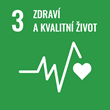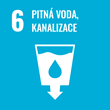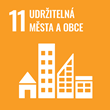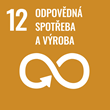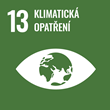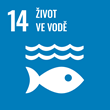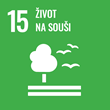Informace o projektu
Securing biodiversity, functional integrity and ecosystem services in DRYing rivER networks
(DRYvER)

- Kód projektu
- 869226
- Období řešení
- 9/2020 - 2/2025
- Investor / Programový rámec / typ projektu
-
Evropská unie
- Horizon 2020
- Climate action, environment, resource efficiency and raw materials (Societal Challenges)
- Fakulta / Pracoviště MU
- Přírodovědecká fakulta
- Spolupracující organizace
-
Johann Wolfgang Goethe-Universität
Universidad de Barcelona
Friedrich-Schiller-Universität Jena
Koninklijke Nederlandse Akademie van Wetenschapp
Universität Innsbruck
Institut national de recherche pour l'agricultur/l'alimentation et l'environnement
Universidad de Cantabria
River networks, hot spots of biodiversity among the most threatened on Earth, act as ecological corridors for species, safeguarding biodiversity at landscape and continental scales. They support crucial biogeochemical cycles and provide us with key ecosystem services, including purifying drinking water, regulating climate and producing food. River networks are metaecosystems, where aquatic communities, ecosystem functions and services are organised spatially by local environmental constraints (e.g. physical habitat) combining regional fluxes of organisms (dispersal) and resources (e.g. organic matter transport). These fluxes are threatened
by climate change and increased human water use, causing rivers and streams to dry up worldwide. Although drying river networks (DRNs) are prevalent and dramatically increasing in time and space, they have had little attention from scientists, policy makers and society. This lack of knowledge prevents us from predicting how climate change will alter river networks and affect their biodiversity,
ecosystem functions and services. Consequently, there is no effective biodiversity conservation strategy or ecosystem management of DRNs facing climate change.
Building on on-going EU efforts and a multidisciplinary team of experts from 15 countries in Europe and beyond, DRYvER will generate mechanistic understanding and predictive capability of how biodiversity and ecosystem functions and services are controlled at multiple spatial and temporal scales by climate change in DRNs. Working closely with stakeholders and end-users, the team will develop adaptive management strategies to mitigate or adapt to climate change effects in DRNs, including hydrological, ecological, NBS, socio-economic and policy perspectives. To broaden its geographical scope, foster synergies with active research
groups on DRNs and put the EU on the forefront of climate change adaptation, DRYvER includes 6 international partners, 3 of which from CELAC countries.
Cíle udržitelného rozvoje
Masarykova univerzita se hlásí k cílům udržitelného rozvoje OSN, jejichž záměrem je do roku 2030 zlepšit podmínky a kvalitu života na naší planetě.
Publikace
Počet publikací: 29
2025
-
Connectivity-Driven Assembly of Trichoptera Metacommunities Across River Networks With Different Drying Patterns
Freshwater Biology, rok: 2025, ročník: 70, vydání: 6, DOI
-
Kterými cestami znovuosídlují vodní bezobratlí toky?
Rok: 2025, druh: Konferenční abstrakty
-
Natural Disturbances and Connectivity Drive Seasonal Taxonomic and Trait Patterns of Aquatic Macroinvertebrate Communities Across Europe
GLOBAL ECOLOGY AND BIOGEOGRAPHY, rok: 2025, ročník: 34, vydání: 5, DOI
-
Occurrence data for stream-dwelling macroinvertebrates from Central Europe
Data in Brief, rok: 2025, ročník: 58, vydání: February, DOI
-
Projections of streamflow intermittence under climate change in European drying river networks
Hydrology and Earth System Sciences, rok: 2025, ročník: 29, vydání: 6, DOI
-
River Drying Causes Local Losses and Regional Gains in Aquatic Invertebrate Metacommunity Diversity: A Cross-Continental Comparison
Global Change Biology, rok: 2025, ročník: 31, vydání: 2, DOI
-
Vývoj biodiverzity vysychavých toků do roku 2100: predikce projektu DRYvER
Rok: 2025, druh: Další prezentace na konferencích
2024
-
Comprehensive database of drying resistance and resilience traits from drying rivers across Europe
Rok: 2024, druh: Konferenční abstrakty
-
Disentangling environmental drivers of macroinvertebrate community structure: the role of stream drying and wastewater pollution
Rok: 2024, druh: Další prezentace na konferencích
-
Dry stream channels as attractive habitats for multiple biotic groups
Rok: 2024, druh: Další prezentace na konferencích
